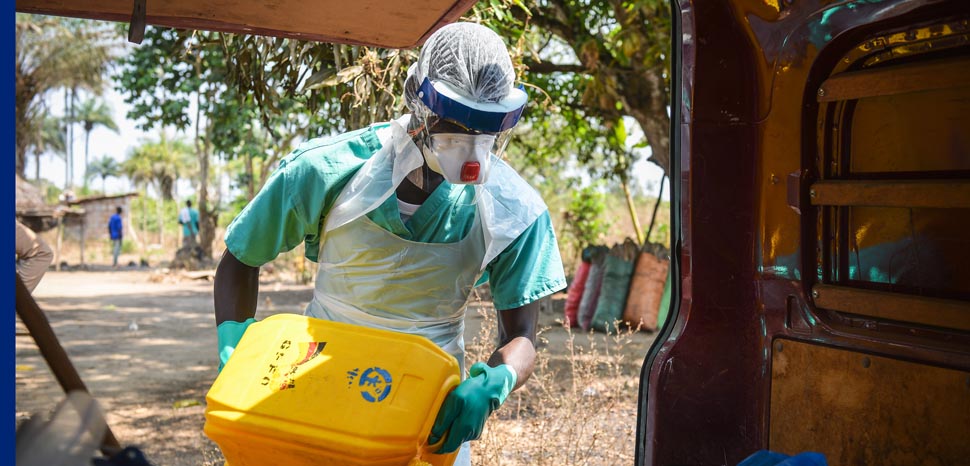
[ad_1]
The Democratic Republic of Congo (DRC) may well be one of the richest countries in the world, but its recent history consists only of internal conflict and poverty. Governed by the Kabila dynasty from 1997 to 2018 and affected by decades of civil wars and humanitarian crises, the country is a huge source of rare minerals and raw materials. Coltan, for example, is a key material used in various high-tech industries, including aerospace. Extracted by thousands of slaves, the ore is illegally mined and sold via Burundi since 1995. Over the years, many armed groups have emerged to seize control of the mines. They used large-scale violence to profit from the illicit trade.
About 13 million people today depend on foreign aid in Congo. About 4.1 million are refugees – more than in Syria. The new president, Felix Tshisekedi, won the disputed elections last year and called for national reconciliation.
While eastern Congo is no longer affected by violent military clashes with its neighbors, in the past two years the smaller scale transboundary dynamics have intensified and armed resistance has increased. There are about 100 militias fighting government forces. However, civil wars and internal conflicts are not the only problem. The latest Ebola crisis is also spreading and the most affected areas are already heavily affected by violence and poverty.
According to Doctors Without Borders, the Ebola outbreak in Congo is out of control. About 570 people have died so far and another 907 are infected. The current crisis is considered the second most serious in the history of the Congo and it is spreading rapidly for several reasons:
First and foremost, widespread instability and armed conflict have repercussions on the response to the epidemic. Health workers were recently attacked in two Ebola treatment centers in Katwa and Butembo. There is great risk for staff working in the hot zone, who may be abducted or killed Doctors Without Borders has had to suspend its activities in these areas due to a critical situation. New experimental drugs and vaccines continue to arrive, but their distribution is extremely difficult. Katwa, near the Ugandan border, is the most critical region. Several cases are also in Butembo and the epidemic could spread to other villages and towns, where there are no properly equipped medical facilities nor qualified personnel for containment and where there is more migratory flow to Rwanda, South Sudan and Uganda.
Long-term tensions and clashes between the government and rebel groups are not contributing to the fight against the Ebola outbreak. The Kivu conflict is one example. Between 2004 and 2008, the Democratic Republic of Congo (FARDC) and the Hutu Democratic Forces for the Liberation of Rwanda (FDLR) fought for control of minerals and rare natural resources in the region. Clashes are still ongoing, preventing the implementation of effective Ebola strategies.
However, this is not the only problem. According to Joanne Liu, president of Doctors Without Borders, the local police forces people to go to Ebola treatment centers to comply with the health measures taken against this virus. But this leads to increased alienation within the community and goes against the control of the epidemic. All people forced to move are not infected. There is a communication problem. Due to coercive measures, locals do not consider these centers as a solution, preferring to hide in their own communities. As a result, more than 40% of fatal cases die in the community and not in a health center.
The increasing militarization of this crisis is likely to have negative consequences, particularly with regard to confidence – a major commodity given the sectarian conflicts in the DRC. The main challenge is the mistrust of the community, especially in Katwa. Community members do not report suspected cases proactively and refuse to cooperate with treatment center operators. The government should play a major role in strengthening community-based prevention policies. Local police are needed to approve cooperation between foreign operators and the local population, as well as to provide a local security presence to rebadure residents. However, the local police should not exercise discretion to report suspected cases and / or act as coercive authority. Otherwise, you risk alienating those whose cooperation is essential to contain the epidemic.
The opinions expressed in this article are binding only on their authors and do not necessarily reflect those of Geopoliticalmonitor.com or the institutions with which the authors are badociated.
[ad_2]
Source link